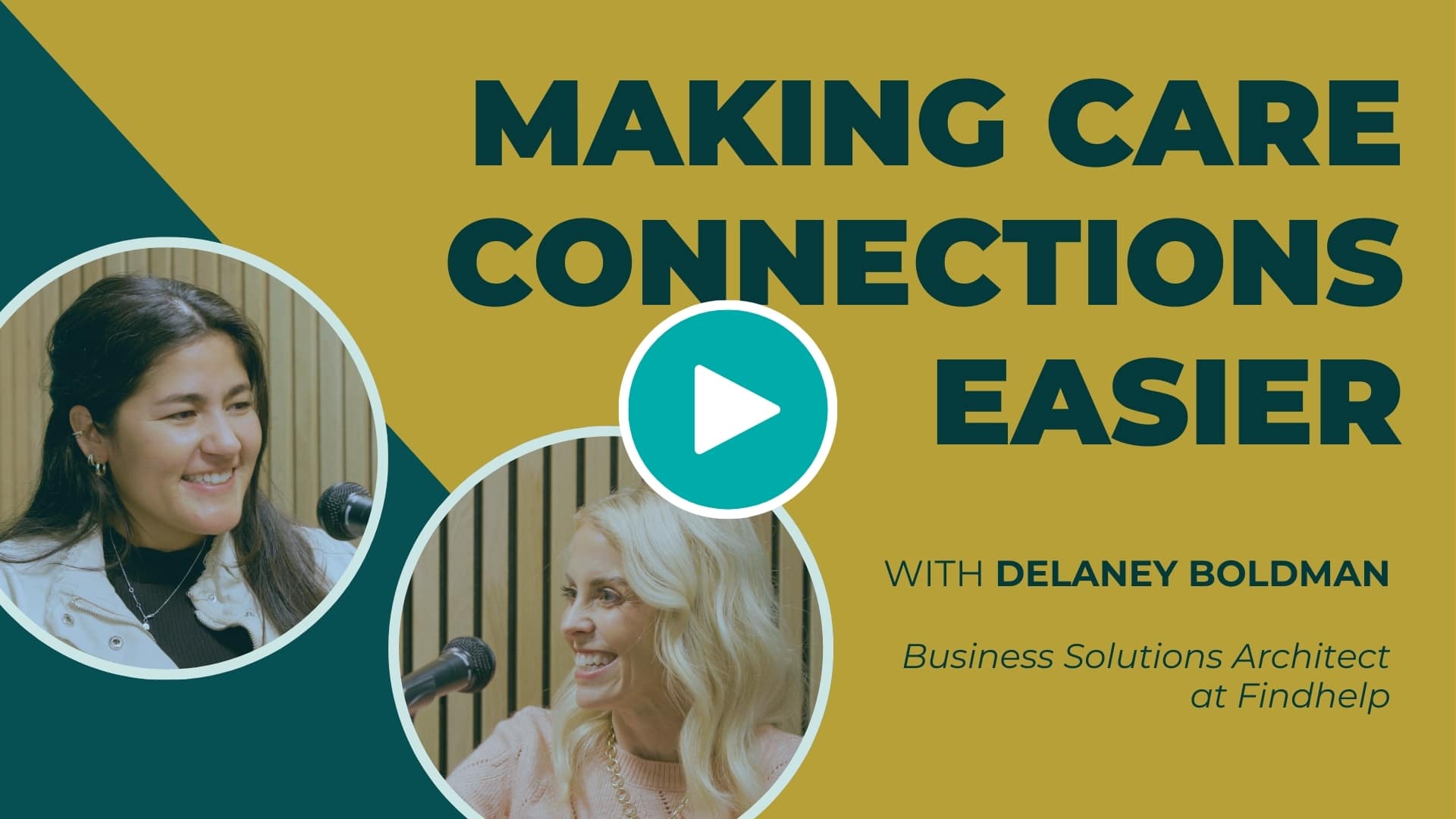Answering the Call: How Social Care Technology Powers CMS’s Value-Based Care Vision
The Centers for Medicare & Medicaid Services (CMS) is sending a clear signal: the future of healthcare is digital, and the time to build a more connected and responsive technology ecosystem is now. Through keynote discussions at its annual quality conference and a formal Request for Information (RFI) on the health technology ecosystem, CMS is mapping out a vision to empower beneficiaries, advance value-based care, and improve health outcomes with technology as a critical tool.
In this post, you’ll learn about:
CMS’ new innovation philosophy
Core principles for building a system that delivers whole-person care
The path to achieve this vision
“Curate the ecosystem, don’t build it”
A powerful theme from CMS leadership is a new philosophy for driving innovation: “curate the ecosystem, don’t build it.” In this model, CMS seeks robust public-private partnerships, where they act as the convener—identifying technologies, setting clear standards, and providing secure access to data.
This is a pivotal and welcome moment. At Findhelp, we believe that to achieve these ambitious goals, the national strategy must extend beyond the walls of healthcare and into the community.
A modern healthcare ecosystem is incomplete without a robust, interoperable social care technology infrastructure. The following core principles are essential to building a system that delivers whole-person care.
Beyond the healthcare setting: The need for a whole-person record
To empower patients, we must first understand their full story. The most valuable health data is a longitudinal record that includes both clinical history and social care interventions. When social care platforms are integrated with electronic health records (EHRs), this comprehensive data validates a person’s lived experience and ensures the entire care team is aware of their real-world challenges. This is foundational for proactive care planning and success in any value-based care model.
Establishing trust: Setting rules of the road for social care data
As we connect systems, we must protect people. The sensitive nature of social care data demands a trusted environment. CMS is uniquely positioned to establish foundational data privacy rules as a condition of program participation.
CMS can use its authority to create an industry standard where:
- Data is for care, not for commerce. Social care data collected for care coordination must never be sold to data brokers.
- Consent is clear and purpose-driven. Patients must give explicit consent before their social care information is shared.
- Platforms are certified. A certification program for social care platforms, similar to the one for EHRs, would ensure platforms meet baseline privacy, security, and interoperability standards.
From data to action: The power of closed-loop referrals
Interoperability isn’t just about sharing data; it’s about enabling action.
Existing interoperability frameworks are valuable for sharing that something happened—like a social needs screening was completed. However, they aren’t designed to support the real-time, transactional workflows (like referrals and scheduling) required to actually connect a person to care. This is where closed-loop referral technology becomes essential.
For value-based care to work, providers need more than a list of community resources. They need to initiate a referral seamlessly within their workflow, route it to the right community-based organization (CBO), and get confirmation that the person’s need was met. This capability builds clinical-community partnerships and ensures no one falls through the cracks.
Powering the shift to value-based care
A key driver of CMS’s technology strategy is the national shift to value-based care, a model where providers are paid for positive patient outcomes, not just for the services they deliver. This model holds providers accountable for their patients’ overall health, but much of what impacts health happens outside of the healthcare setting.
For providers to succeed in this new reality, they need tools to manage these non-medical factors. Findhelp provides this essential capability by empowering care teams to:
- Seamlessly connect patients with vital community services directly within their workflow.
- Receive confirmation that help was delivered, closing the loop on care and ensuring accountability.
- Generate tangible data that proves a social need was identified and met, which is the missing link for measuring outcomes, managing risk, and demonstrating ROI.
The path forward
The vision set forth by CMS for a technologically advanced, patient-centric healthcare system is the right one. The journey to get there requires collaboration, innovation, and a shared commitment to building bridges between systems that have been siloed for too long.
At Findhelp, we are committed to working with CMS and our partners across the country to build this future. By prioritizing open standards and integrating social care as a core component of the health technology ecosystem, we can create a system that truly connects people to the help they need, with dignity and ease.









